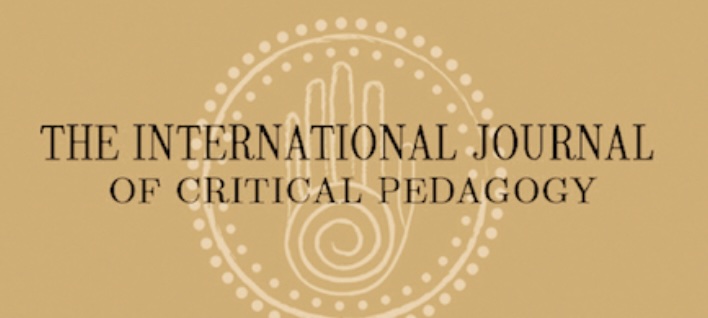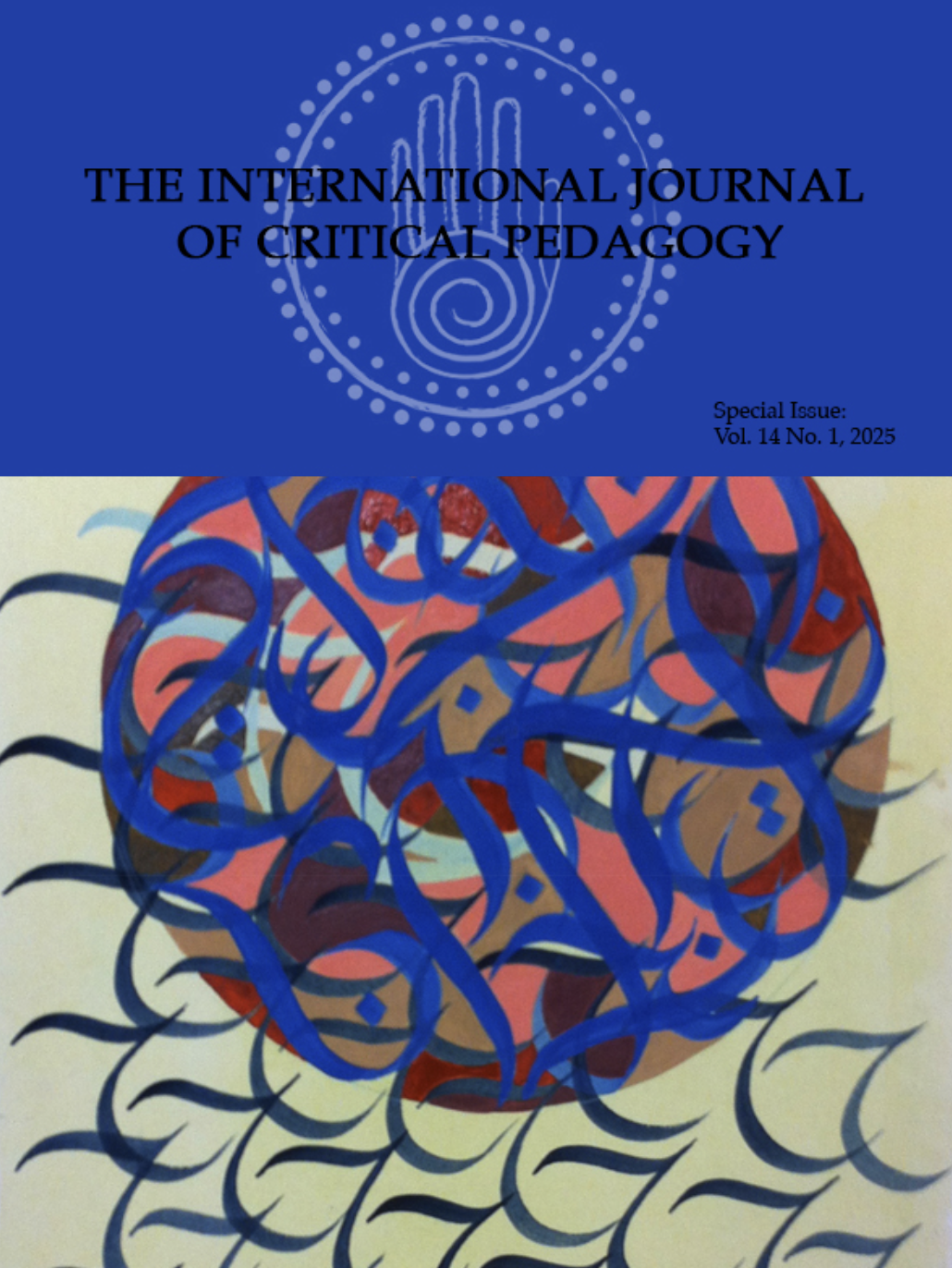Abstract
Abstract: Life landscapes is a concept that draws attention to ways in which people, places, and spaces are engaged in continual dialogue, through explicit and hidden curriculum that acts to shape identities, values, and worldviews. Explorations of life, and other social landscapes, offer an approach to Paulo Freire’s liberation education--that is, an approach to reading, and teaching to read, the world. This paper offers an understanding of “the world” as life and social landscapes with curricular dimensions to explore socio-spatial memories and experiences, systems and geographies of inequities, and strategic approaches to social change. Conceptualizing a theoretical and praxis-oriented framework as an approach to liberation education, this paper seeks to bring two critical discourses in conversation with one another: the hidden curriculum in education and spatial analysis in cultural geography. Theorizing a relationship between the hidden curriculum and the production of space, this paper offers curricular-spatial analysis and landscape literacy as two interrelated elements of a theoretical and praxis-oriented framework in service to liberation education to open new possibilities for reading, and teaching to read, the world.
Keywords: liberation education, hidden curriculum, spatial analysis, curricular-spatial analysis, landscape literacy
How to Cite:
Perez, A., (2019) “Landscape Literacy: Teaching to Read the World through a Curricular-Spatial Analysis”, International Journal of Critical Pedagogy 10(1).
Downloads:
Download PDF
View PDF

